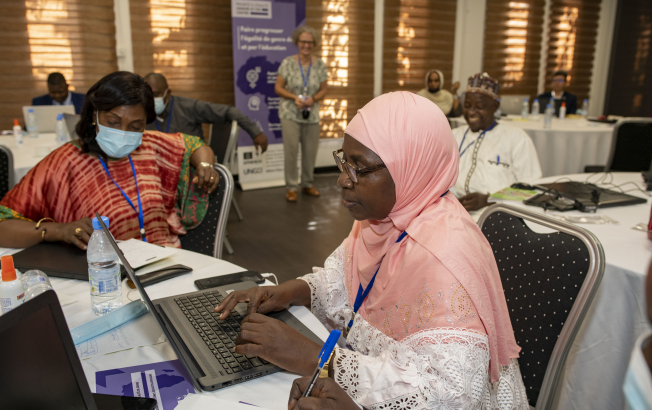IIEP-UNESCO Dakar's Community of Practice in Gender and Education meets in Senegal
- The workshop will take place face-to-face over one week in Dakar, from 15 to 19 November 2021
- 13 Francophone countries are represented
- 21 educational planners, who form the Gender and Education Community of Practice (GECP) of IIEP-UNESCO Dakar are taking part
15 November 2021
A workshop bringing together a group of 21 educational planners and managers from all over Africa, who form the first IIEP-UNESCO Dakar Community of Practice in Gender and Education (CPGE), starts today in Dakar. Thirteen Francophone countries are represented.
The CPGE is a follow-up to the Francophone University on Gender Responsive Planning, an IIEP-UNESCO Dakar virtual training course that ran from November 2020 to February 2021. CPGE activities aim to support participants to apply what they learned at the University in their respective professional contexts.
So far, the Gender at the Centre Initiative (GCI) team has been working with the community of practice on gender institutionalisation and strategic change roadmaps to advance gender mainstreaming in their respective ministries of education.
"Twenty-one planners were able to come to Dakar for an 'in the flesh' meeting that allowed them to get to know each other, to complete the links created online with 'common experience' - also enriched by the informal moments and of course to work together. These five intense days make a decisive contribution to 'community building'," said Elisabeth Hofmann, gender expert, and trainer.
The workshop took place over one week in Dakar, from 15 to 19 November 2021. It allowed group members to meet, network, and learn about topics such as training modalities, civil society engagement, and developing indicators for monitoring progress.

